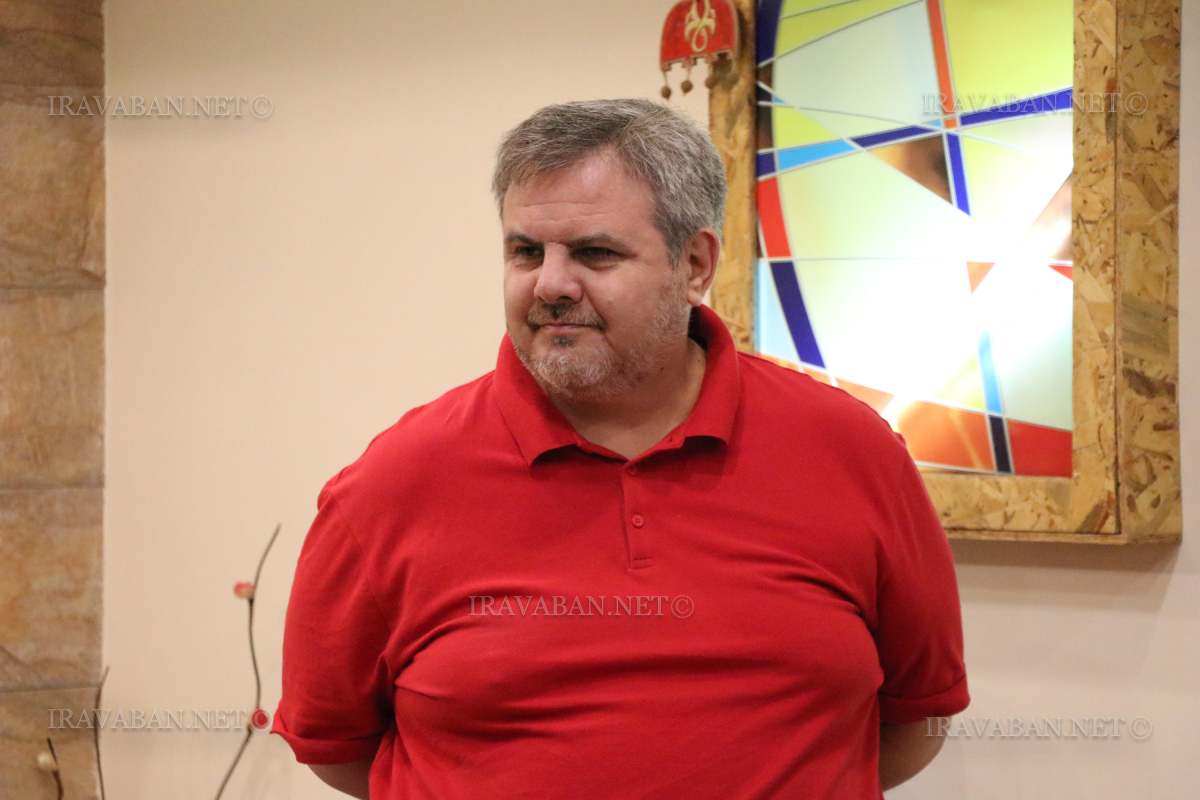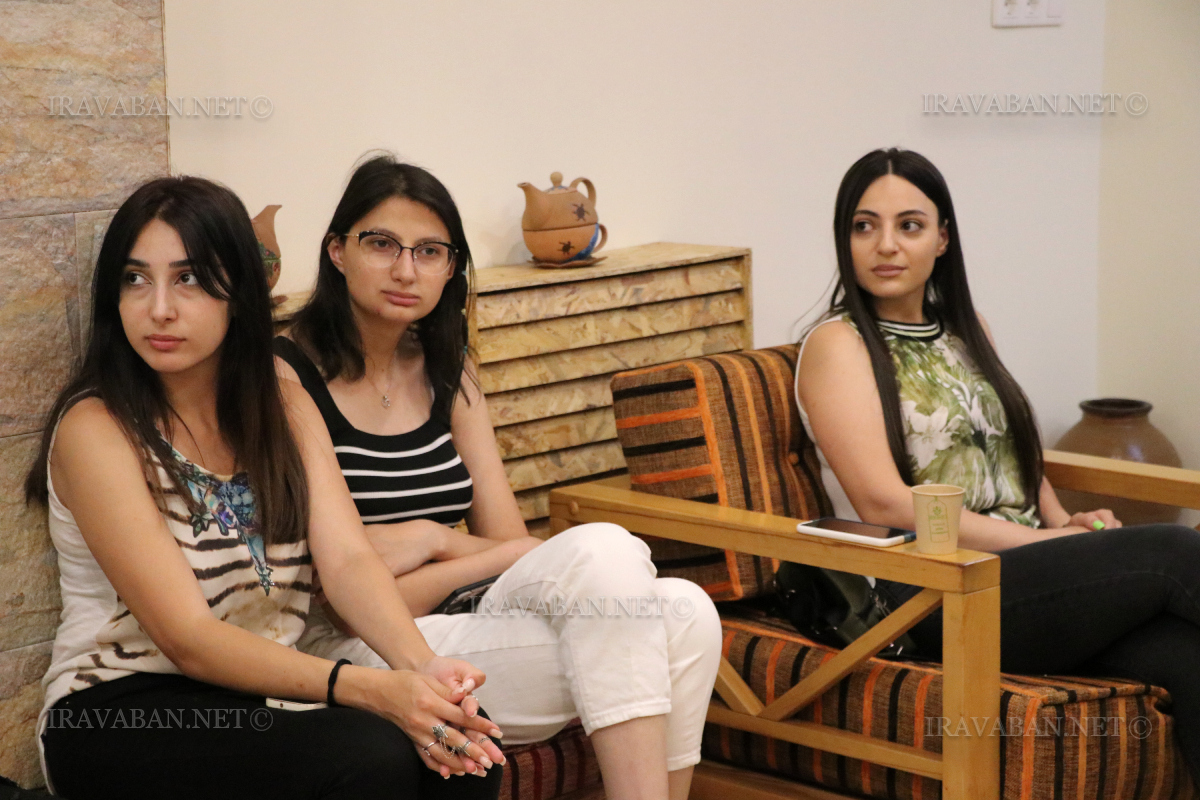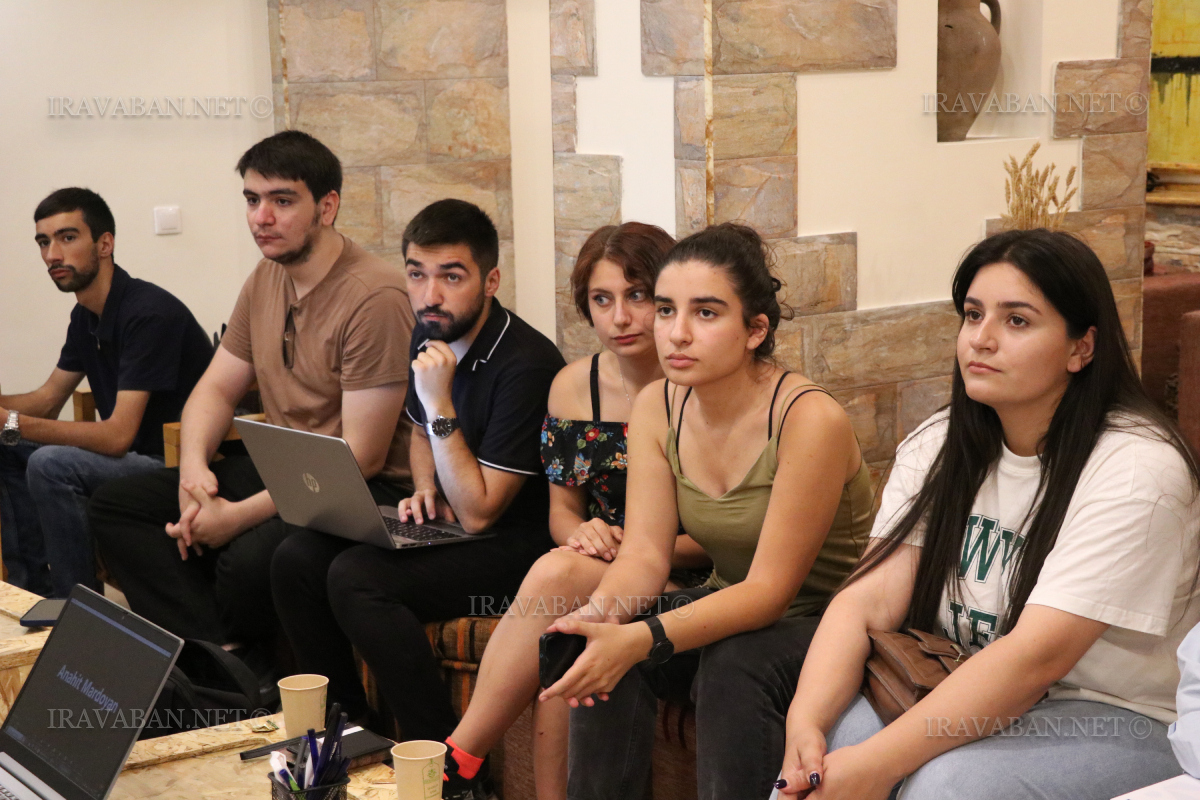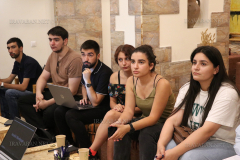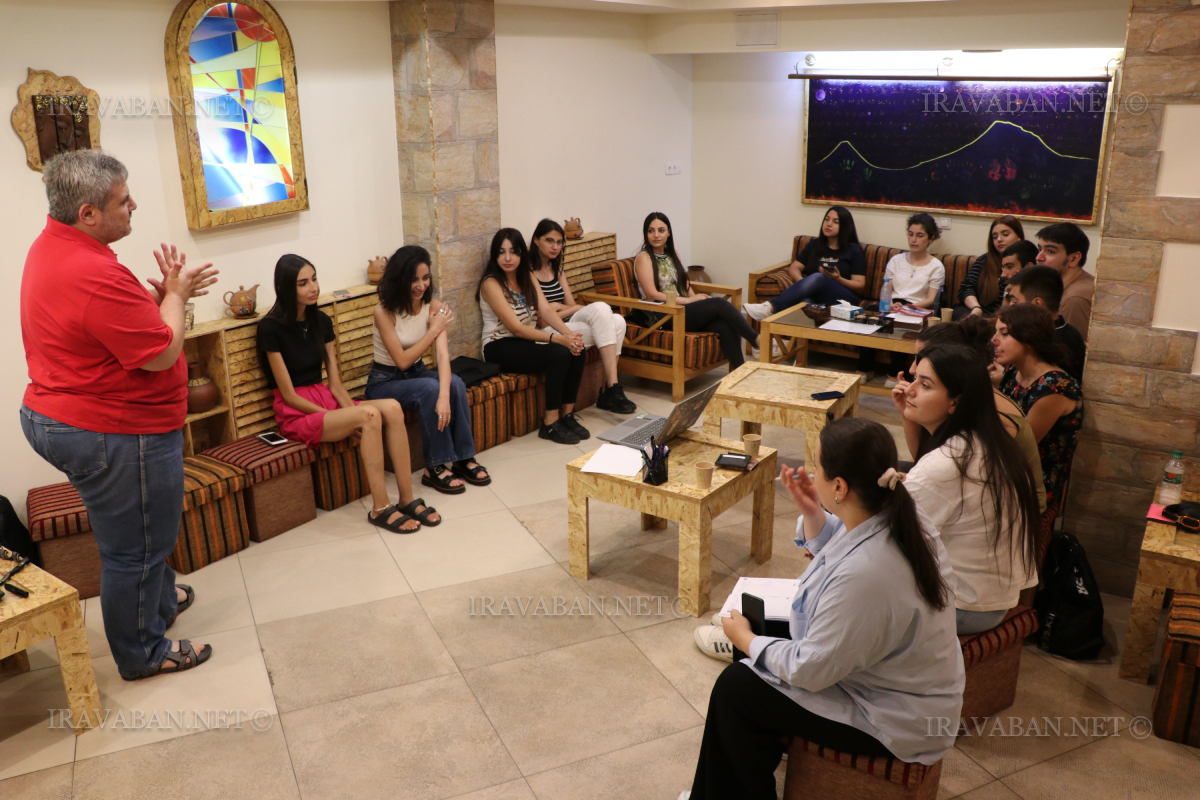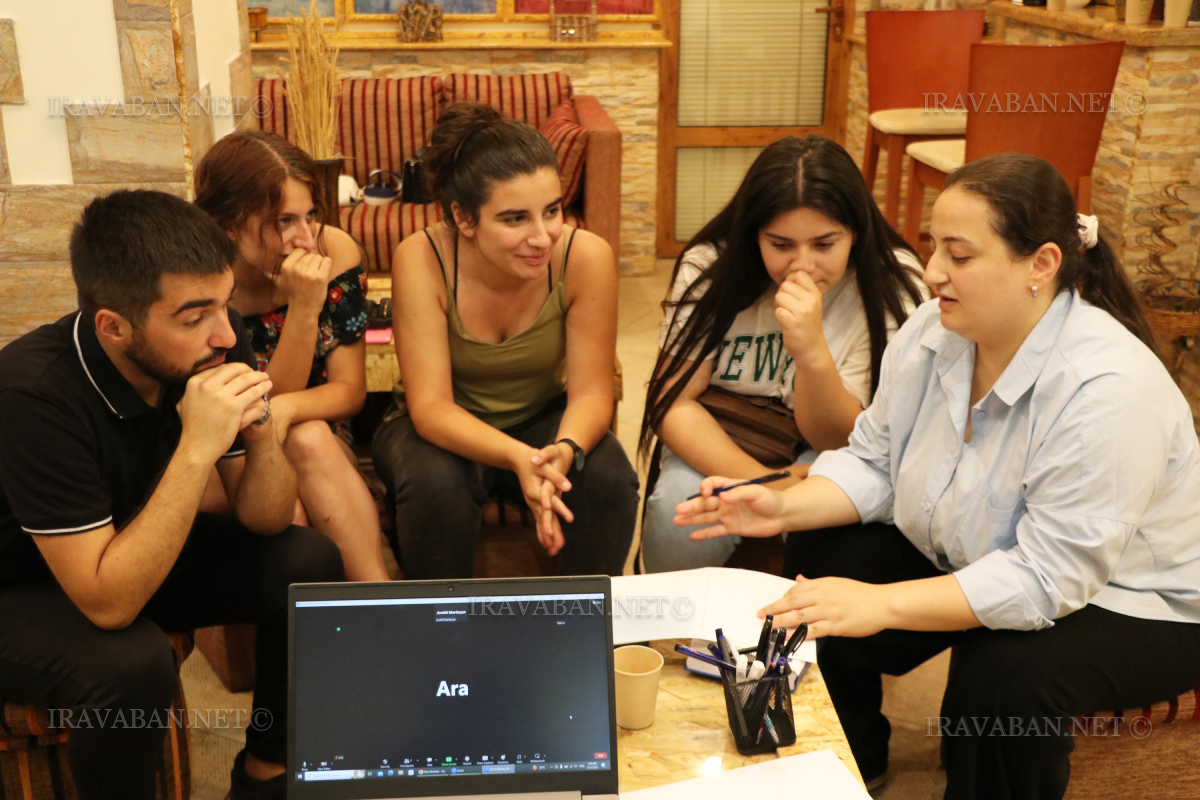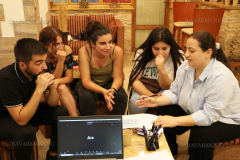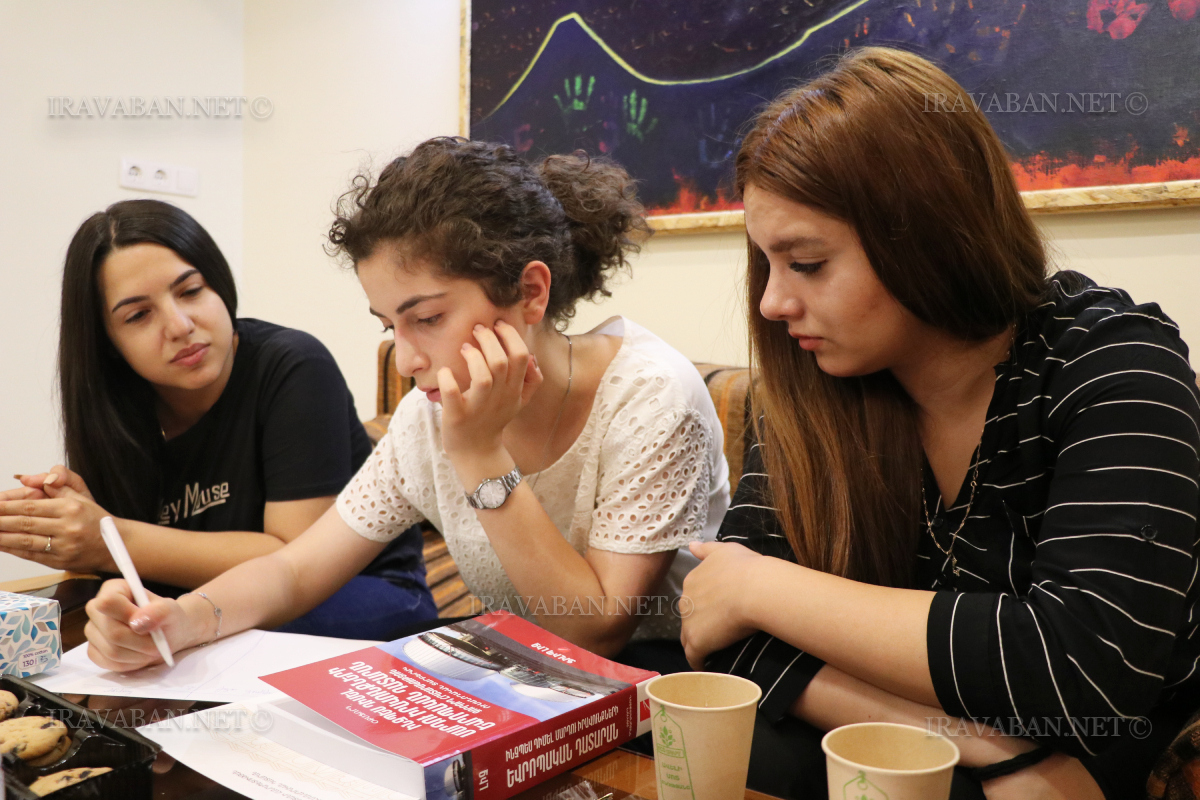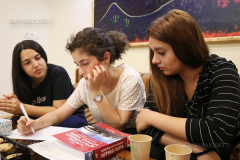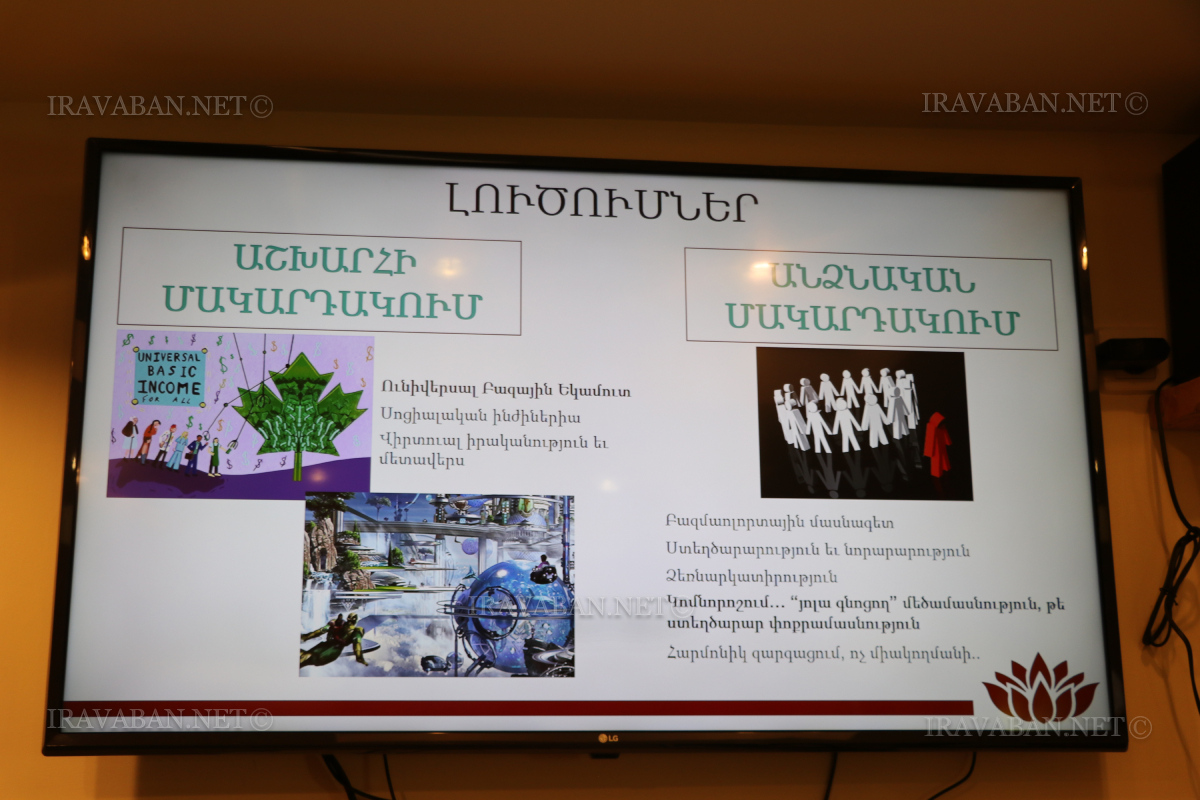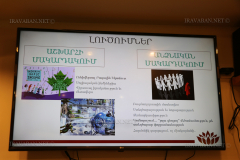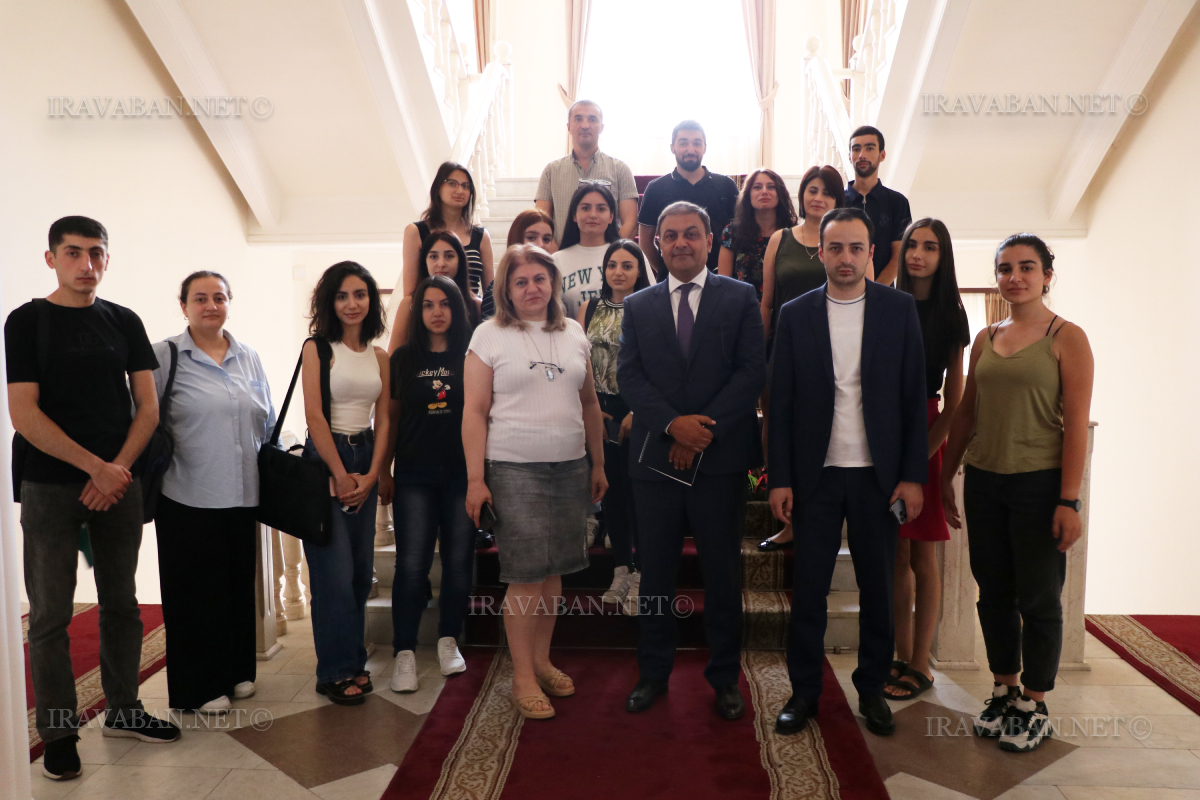
On 28 July, students of 9th stream of the Anti-Corruption School for Young Leaders, the 1st anti-corruption professional educational initiative operating in the Republic of Armenia, within the framework of the master classes and practical skills development phase of the school visited the Ministry of Finance and met with the Head of the Budget Process Coordination Department, Ruzanna Gabrielyan, the Head of the Procurement Policy Department Sergey Shahnazaryan and Head of Legal Department Hayk Harutyunyan.
Secretary General of the Ministry, Karen Sargsyan welcomed the students of the school.
Ruzanna Gabrielyan presented the main problems facing the department. One of the students of the Anti-Corruption School emphasized that the budget is formed from taxes paid by citizens and legal entities. “What is being done to make it affordable and accessible to the public, what are they spending their taxes on?” How do you demonstrate the tangible usefulness of the Ministry of Finance in the life of an ordinary citizen?”
Ruzanna Gabrielyan mentioned that the budget message is an important and integral part of the budget document. It describes what the next year’s budget will be aimed at, what targets it will have and why this or that sector has been given importance.
The Head of the Budget Process Coordination Department noted that all the information on the mentioned issue is included in the official website of the Ministry of Finance, in all quarterly reports.
“In the “Performance Indicators” application, it is shown how much money has been allocated to solve the specified problem. Clarifications are also given about deviations and how the deviation occurred. The most informative are the result indicators, which connect the money with the result,” Ruzanna Gabrielyan said.
The Head of the Budget Process Coordination Department also answered a number of other questions from the students, which were related to both budget shortfalls, foreign debt and budget formation.
Hayk Harutyunyan spoke about the general functions of the Ministry of Finance. He touched on budgeting and its goals. “Budgeting should be implemented in such a way as to contribute to the fulfillment of your obligations to the society as much as possible. Commitments are formed within a certain dialogue. That dialogue is the political elections and the program presented by the forces.”
According to the speaker, the state budget is not only a consequence, but also a means to fulfill the obligations assumed before the Government.
The students were particularly interested in the materials presented by Sergey Shahnazaryan on the field of state procurement. The armeps.am system was presented as well as. He noted that the site has a fairly flexible filtering system, which provides an opportunity to retrieve any information.
“You just have to work with it and use the possibilities of the system. If there are suggestions to make the system more flexible, there is a need to add other windows, to generate information with a different logic for analysis, we are ready to discuss. It will help us a lot, we will be grateful if we have those suggestions. Furthermore, we are in the process of developing new software. But, I think, today’s operating system gives the possibility to receive, generate and analyze information automatically,” Shahnazaryan noted.
An agreement was reached to send the proposals, as well as the questions arising from the system, to the Ministry of Finance.
Notably, the training in the Anti-Corruption School for Young Leaders will be organized in the following phases:
- ONLINE TRAINING PHASE, during which the students will pass a basic anti-corruption course consisting of 25 topics through the school’s online anti-corruption training platform. Those students who have completed all the knowledge test questionnaires and received the appropriate points for completing the online training will be considered completed the online training phase.
- MASTER CLASS AND PRACTICAL SKILLS DEVELOPMENT PHASE, during which students who have successfully completed the advanced stage of school will be divided into groups and each group will conduct a study, monitoring or investigation on one of the in-depth anti-corruption topics. During this phase, the work will be organized in the form of group meetings, discussions, and meetings with representatives of the sectors and other relevant bodies and organizations. Attendees will learn a range of innovative tools and gain related skills. At this stage, mentoring for groups is planned.
- PUBLIC AWARENESS PHASE, during which students who have successfully completed the practical skills development phase of the school will have the opportunity to disseminate their anti-corruption knowledge among young people through public awareness seminars.
- ADVANCED TRAINING PHASE, during which the best 15-20 participants who have achieved high results in the online training phase of the school, successfully completed the in-depth interview phase and are selected, will participate in the outreach (out of Yerevan) in-depth anti-corruption training. The in-depth training phase of the school will consist of the modules: “Anti-Corruption Advanced Training” and “Pillars of National Identity”.
- FINAL PHASE, during which the students, who have successfully completed the practical skills development and public awareness stages of the school, will present their research and public awareness results to the reputable jury and the public.
Students who have passed and successfully graduated from all five phases of the School will be awarded GRADUATION CERTIFICATES of Anti-Corruption School for Young Leaders.
“The Armenian Lawyers’ Association” NGO is organizing the Anti-Corruption School for Young Leaders in cooperation with the CSO Anti-Corruption Coalition of Armenia.
The information partner of the Anti-Corruption School for Young Leaders is Iravaban.net, independent professional news website.

